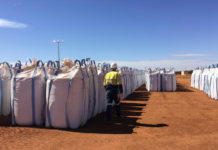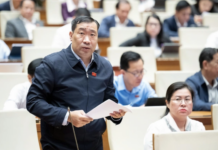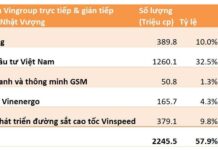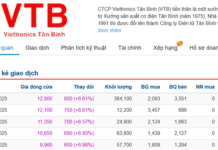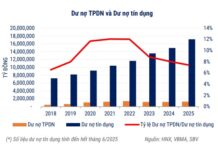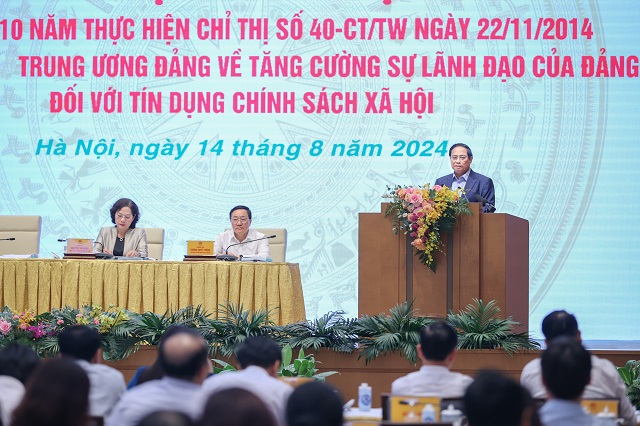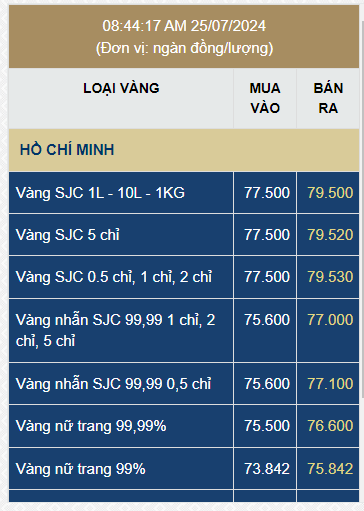On the afternoon of August 14, at the Government Headquarters, Prime Minister Pham Minh Chinh chaired the conference to review 10 years of implementing Directive No. 40-CT/TW, dated November 22, 2014, by the Secretariat of the Party Central Committee on strengthening the Party’s leadership over social policy credit.
Also attending the conference were Governor of the State Bank Nguyen Thi Hong, Chairwoman of the Board of Directors of the Social Policy Bank; members of the Board of Directors of the Social Policy Bank: Minister and Chairman of the Committee for Ethnic Minorities Ha Ou Di, President of the Vietnam Women’s Union Ha Thi Nga, and President of the Vietnam Farmers’ Union Nguyen Quoc Tuan; leaders of ministries, sectors, central agencies, and localities.
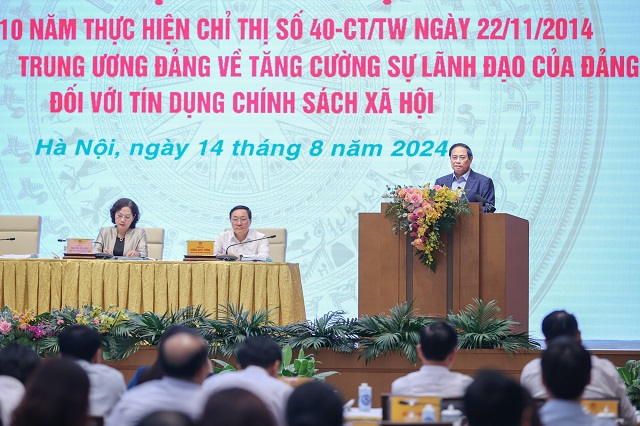 Prime Minister Pham Minh Chinh emphasized that the consistent and persistent policy of the Party and State in nation-building is to pursue economic development in tandem with social progress and equality, ensuring that all people benefit from socio-economic development – Photo: VGP/Nhat Bac
|
On November 22, 2014, the Secretariat issued Directive No. 40-CT/TW on strengthening the Party’s leadership over social policy credit. After five years of implementing this Directive, the Secretariat issued Conclusion No. 06-KL/TW, dated June 10, 2021, on continuing the implementation of Directive 40-CT/TW.
To concretize the tasks and solutions to implement Directive 40-CT/TW and Conclusion 06-KL/TW of the Secretariat, the Prime Minister has issued decisions (Decision No. 401/QD-TTg dated March 14, 2016, and Decision No. 1630/QD-TTg dated September 28, 2021) on the plan to implement Directive 40-CT/TW and Conclusion 06-KL/TW of the Secretariat, setting out four main tasks and solutions and assigning specific tasks to central ministries and sectors, local authorities at all levels, and the Social Policy Bank.
Reports and opinions at the conference unanimously assessed that the achievements over the past 10 years have affirmed that Directive No. 40-CT/TW and Conclusion No. 06-KL/TW are correct, appropriate, practical, and breakthrough directions in leading and guiding the implementation of social policy credit, thereby receiving the consensus and support of all levels, sectors, and people from all walks of life, as well as high appreciation from the World Bank and international organizations, contributing to the effective implementation of the guidelines, policies, objectives, and tasks set by the Party and State.
Over the past 10 years, more than 21 million households have been provided with preferential loans for production and business development. As a result, more than 3.1 million households have escaped poverty; more than 4.2 million workers have been provided with loans to create jobs; over 13.2 million works on supplying clean water, sanitation, and environmental improvement to rural people have been built; more than 610,000 students and pupils have been provided with loans to cover their study expenses; more than 193,000 houses have been built for the poor and policy beneficiaries; and more than 1.2 million employees of enterprises have been provided with salary loans due to the impact of the COVID-19 pandemic…
The goal of capital preservation and development for the State has been ensured, and the quality of social policy credit has been improved. The rate of overdue and frozen debts decreased from 0.93% of the total outstanding loans (at the beginning of the implementation of Directive No. 40-CT/TW) to 0.56% of the total outstanding loans, of which overdue debts accounted for 0.22% of the total outstanding loans (as of July 31, 2024).
‘Highlight’ and ‘Pillar’ in the System of Social Security Policies
Speaking at the conference, Prime Minister Pham Minh Chinh emphasized that the consistent and persistent policy of the Party and State in nation-building is to pursue economic development in tandem with social progress and equality, ensuring that all people benefit from socio-economic development; not to “sacrifice” social progress, equality, and welfare for mere economic growth; with the spirit of “all together develop”, “leave no one behind”, sharing, doing, enjoying, and winning together.
Combining economic growth with social progress and equality, limiting the wealth gap, and implementing good social security policies are both the goal and the driving force for the country’s sustainable development.
According to the Prime Minister, with the achievements after more than a decade of the whole political system joining hands, social policy credit has become a “highlight” and a “pillar” in the system of poverty reduction and social security policies, meeting the aspirations of the people, especially the poor and vulnerable.
The conference reviewed and evaluated the achievements and limitations, shortcomings, causes, and proposed recommendations.
The Prime Minister assigned the Government Office and the Social Policy Bank to synthesize and receive comments, suggestions, and recommendations and report to the Government and the Prime Minister to advise and propose to the Politburo and the Secretariat (through the Central Economic Committee) to issue appropriate documents to continue strengthening the Party’s leadership over social policy credit in the new context.
The Prime Minister outlined six main achievements in implementing Directive No. 40 in the past 10 years.
First, the levels, branches, and localities from the central to local levels and the Social Policy Bank have identified the direction of social policy credit as one of the key tasks in the programs and plans of regular activities of localities and units.
Second, the Social Policy Bank has continuously improved the effectiveness of the organizational model and management methods of credit with specific characteristics, creativity, and suitability to the reality of Vietnam. It has promoted the leadership role of the Party, the management role of the State, the companionship of the entire political system, and mobilized the strength of the people in participating in the management and supervision of the quick, timely, and effective implementation of the State’s preferential credit policies for the poor and policy beneficiaries.
The Social Policy Bank has been assessed by the World Bank as “the largest microfinance service provider in Vietnam and one of the largest microfinance banks in Asia and one of the few successful and sustainable models in the world. The development journey of the Social Policy Bank brings valuable lessons and experiences for the governments of other developing countries.”
Third, the Social Policy Bank has focused on mobilizing a large and diverse source of capital, continuously increasing year after year, creating a large resource to gradually expand the subjects and increase the loan level to meet the capital needs of the poor and policy beneficiaries in a better and more timely manner.
In the past 10 years, an additional VND 238,338 billion has been mobilized (2.8 times higher than before the implementation of the Directive), bringing the total social policy credit source to VND 373,010 billion, with an average annual growth rate of 10.8%.
A notable and commendable point is that 100% of provincial and district-level localities nationwide have paid attention to balancing and allocating local budgets through the Social Policy Bank for on-lending, reaching VND 47,350 billion, an increase of VND 43,542 billion (12.4 times higher) compared to before the implementation of the Directive.
Fourth, the Social Policy Bank has effectively implemented the Government and the Prime Minister’s directions in reviewing, studying, amending, and supplementing the completion of policies and laws to mobilize, manage, and use social policy credit resources effectively.
In the past 10 years, many policies have been issued by the Government and the Prime Minister, such as the policy on lending to new-escaped poor households; preferential lending for buying, renting, and buying social houses; lending for socio-economic development in ethnic minority and mountainous areas; lending to people who have completed their prison sentences; policies on salary support lending for businesses and employees affected by the pandemic…
Fifth, the Social Policy Bank has closely coordinated with local governments and socio-political organizations to quickly and effectively deploy credit programs with an increasing scale.
The total outstanding loans of the credit programs have reached VND 350,822 billion, an increase of VND 221,365 billion (nearly 171% higher) compared to the end of 2014, with more than 6.8 million poor households and policy beneficiaries still having outstanding loans, with an average annual growth rate of 10.5%.
The source of social policy credit has been widely deployed to 100% of communes, wards, and townships nationwide, helping more than 21 million poor households and policy beneficiaries with a lending turnover of VND 733,152 billion. Priority has been given to lending in ethnic minority, mountainous, remote, and difficult areas…
The source of social policy credit has made an important contribution to successfully implementing the goal of multidimensional, inclusive, and sustainable poverty reduction, reducing the multidimensional poor household rate from 14.2% in 2011 to 2.93% at the end of 2023 (according to the multidimensional poverty line).
Sixth, the Social Policy Bank has focused on inspecting and supervising and establishing discipline and order in the direction and compliance with regulations in managing and using the State’s resources in implementing social policy credit.
It has promoted the role of supervision and social criticism of the Fatherland Front and socio-political organizations, especially the role of inspection and supervision of the whole people with the motto “the people know, the people discuss, the people do, the people check, the people supervise, and the people benefit.”
At the same time, it has promoted the application of information technology, digital transformation, and reform of procedures for handling work; established and implemented 10,455 commune-level transaction points with the method of “transaction at home, disbursement, and debt collection at the commune,” a specific feature and a strength that no credit institution or microfinance organization has. In addition, it has paid attention to training and improving the quality of human resources to meet the requirements of the new situation.
On behalf of the Government, Prime Minister Pham Minh Chinh acknowledged, praised, and highly appreciated the initiative and activeness of the central ministries and sectors, local authorities at all levels, especially the important contributions of the Social Policy Bank in advising and implementing Directive 40, Conclusion 06 of the Secretariat, and the plan to implement the directives and conclusions of the Secretariat issued by the Government and the Prime Minister.
Along with the above achievements, the Prime Minister pointed out that the implementation of Directive 40 and Conclusion 06 of the Secretariat still has some limitations and shortcomings, such as the capital structure is not really reasonable and ensures sustainability; the source of entrusted capital in some provinces is still limited and has not matched the potential and strengths of socio-economic development in each locality; some credit policies have been adjusted to increase the loan level, but the implementation is still slow (the credit program for clean water supply and sanitation and environmental improvement in rural areas, lending to difficult areas…)
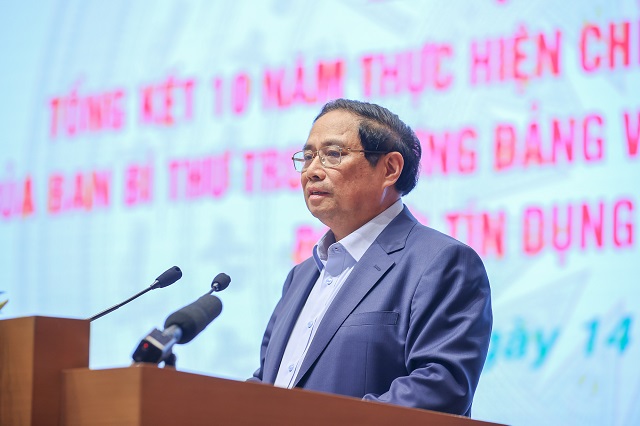 The Prime Minister requested the Social Policy Bank to prioritize capital sources for ethnic minorities in mountainous, particularly difficult, remote, border, and island areas – Photo: VGP/Nhat Bac
|
‘Understand the People’s Heart, Serve Wholeheartedly, and Improve Effectiveness’
According to the Prime Minister, in the coming time, the international and regional situation will continue to develop complicatedly and unpredictably. Domestically, we are facing not a few difficulties and challenges in economic development and the implementation of social progress and equality, ensuring social welfare and the lives of the people, especially the poor and policy beneficiaries.
Therefore, it is necessary to continue to identify social policy credit as an important solution to implementing the guidelines, policies, objectives, and tasks of the Party and State on combining economic growth with social equality, implementing national target programs, and socio-economic development of the country.
Based on the 10-year review of the implementation of Directive No. 40-CT/TW in provinces and cities and at this conference, six major orientations for the coming time were outlined, and the Prime Minister requested to continue to thoroughly grasp and effectively implement the Party’s viewpoints on social policies (Resolution No. 42-NQ/TW, dated November 24, 2023, of the Party Central Committee on continuing to innovate, improve the quality of social policies, and meet the requirements of the cause of construction and protection of the Fatherland in the new period) and on social policy credit (Directive 40-CT/TW and Conclusion 06-KL/TW of the Secretariat), and the Strategy for the development of the Social Policy Bank to 2030 approved by the Prime Minister.
Second, in reality, the organizational model and management method of credit that the Social Policy Bank has implemented in more than 20 years are suitable for the actual conditions and situation of each period of Vietnam.
Therefore, it is necessary to soon complete the decree on the organization and operation of the Social Policy Bank; effectively implement the direction; improve the quality of the implementation of the entrustment/authorization between the Social Policy Bank and socio-political organizations, the Savings and Loan Management Board; and improve the quality and ensure safety at the commune-level transaction points.
At the same time, it is necessary to strengthen the role and responsibility of the chairman of the communal People’s Committee in performing the State management function of social policy credit at the grassroots level.
Third, the central ministries and branches shall continue to review and complete the regulations to focus resources and improve the capital structure for the Social Policy Bank towards stability and sustainability; proactively report and advise the National Assembly, the Government, and the Prime Minister to balance and allocate enough charter capital, interest rate subsidies, management fees, and capital for implementing new social policy credit programs to ensure that the capital source is arranged in the medium-term and annual investment plans for the Social Policy Bank.
Study and report to the competent authorities for consideration and permission to increase the limit on the issuance of government-guaranteed bonds; create favorable conditions for the Social Policy Bank to be able to receive ODA capital and expand capital mobilization forms… to strengthen resources to implement the goal of expanding subjects and increasing loan levels of credit programs, in line with socio-economic development goals and the implementation of national target programs in the coming period.
Complete the legal framework, mechanisms, and policies related to the organization and operation of social policy credit of the Social Policy Bank.
Study and supplement credit support policies to serve production and business activities for households with a medium living standard in agriculture, forestry, fisheries, and salt production.
At the same time, it is necessary to continue reviewing and completing mechanisms and policies on credit, finance, labor, and salaries… to create conditions for the Social Policy Bank to develop into an organization with autonomy, stable and long-term development, and sustainability, with sufficient capacity to effectively implement social policy credit.
Fourth, localities need to continue to pay attention to and prioritize the allocation of local budgets to the Social Policy Bank, especially capital for job creation loans, capital for social housing loans…
Especially with the spirit of “the Central and localities do together,” it is necessary to thoroughly grasp and effectively implement Directive No. 34-CT/TW, dated May 24, 2024, of the Secretariat on strengthening the Party’s leadership over housing development for social policies in the new situation.
The Ministry of Construction shall take the prime responsibility and coordinate with the Ministry of Planning and Investment, the Ministry of Finance, and the State Bank to study and build a package of VND 30,000 billion (for lending to buy, rent, buy, build, or renovate houses to implement social policies) for the Social Policy Bank to implement, of which VND 15,000 billion is from the source of government bond issuance and VND 15,000 billion from the source of local budget capital contribution.
Fifth, the Social Policy Bank shall focus on capital sources for ethnic minorities in mountainous, particularly difficult, remote, border, and island areas.
At the same time, it is necessary to well implement inspection and supervision, improve forecasting and analyzing capacity, promote the application of information technology, digital transformation, and banking modernization, improve professional qualifications and ethical standards, and build a contingent of officials with prestige, advanced and modern working styles, dedicated and devoted service to the people.
Sixth, the Prime Minister proposed that the Vietnam Fatherland Front and socio-political organizations at all levels continue to effectively implement communication, supervision, and social criticism of the implementation of the Party and State’s guidelines and policies on poverty reduction, social security, and social policy credit activities.
With the motto of action “understand the people’s heart, serve wholeheartedly, and improve effectiveness,” the Prime Minister believes that the Social Policy Bank will promote its traditions, achievements, and experience in implementing, overcoming limitations and shortcomings, and making more efforts to better perform the tasks assigned by the Party, State, and people, affirming its great social mission and responsibility.
Prime Minister: Collective economic contribution to GDP remains low
Prime Minister Pham Minh Chinh believes that our country’s collective economic areas have not developed as intended and required. The growth rate and contribution of collective economic areas to the overall gross domestic product (GDP) are still low.
Prime Minister demands thorough inspection so that everyone can have Tet
Prime Minister Pham Minh Chinh emphasized the importance of ensuring a safe and joyful Lunar New Year for all citizens. Local authorities and organizations are responsible for making sure that everyone can celebrate the holiday in a healthy, efficient, and inclusive manner, ensuring that no one is left behind and that everyone can enjoy the Lunar New Year festivities.
Prime Minister: Collective economic development is an inevitable trend in the context of international integration.
According to the Prime Minister, collective economic development is an essential trend in the context of international integration, aligning with Vietnam’s socialist-oriented market economy. Collective economic organizations operate with a primary focus on economic benefits while also valuing political, cultural, and social benefits within the local area.



